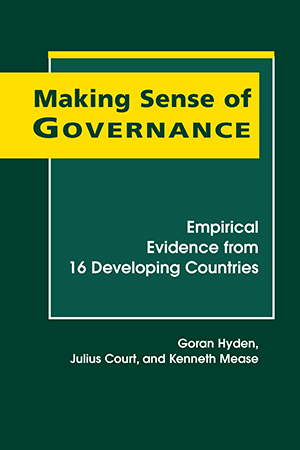
- 2004/262 pages
Making Sense of Governance:
Empirical Evidence from Sixteen Developing Countries
Hardcover: $68.50
ISBN: 978-1-58826-267-7
Although governance has been the focus of a considerable body of literature on democratic transitions and consolidation, data to support the claim that the concept is a useful one has been lacking. Now, however, Making Sense of Governance clearly shows the utility of research on governance, presenting empirical evidence from sixteen developing countries.
The authors focus on six arenas: civil, political, and economic society and the executive, bureaucracy, and judiciary. Demonstrating conclusively for the first time that perceptions of governance by local stakeholders are realistic indicators of the nature and quality of a political regime, they also reveal the dynamic nature of governance and to what extent it correlates with socioeconomic variables.
This comprehensive study is based on interviews in Argentina, Bulgaria, Chile, China, India, Indonesia, Jordan, Kyrgyzstan, Mongolia, Pakistan, Peru, Philippines, Russia, Tanzania, Thailand, and Togo.
No rights in South Asia







